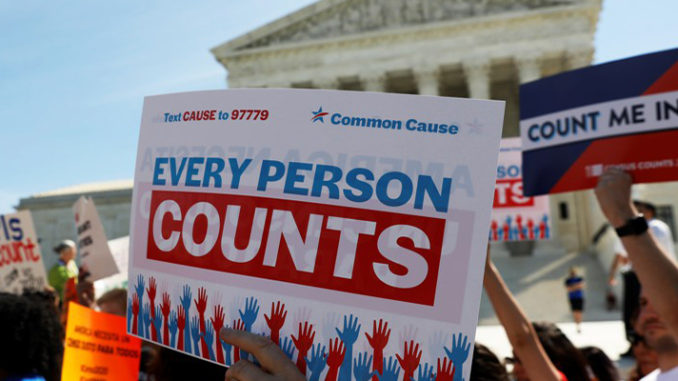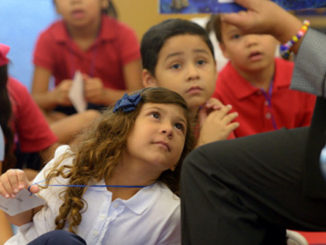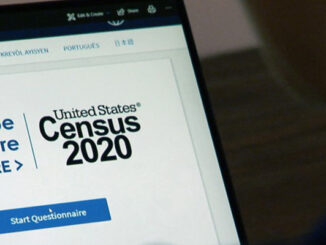
Latinos are much younger than the general U.S. population, making any projected cuts in funding for children due to an undercount disastrous for Latinos.
by Gabriel R. Sanchez
The recent report from the U.S. Census confirmed what many experts and advocates have worried about over the past two years, that despite achieving an accurate overall estimate of the population, the 2020 Census suffered from a significant undercount of Latinos and other racial and ethnic minorities. The undercount of Latinos was 4.99%, three times the 1.54% undercount in 2010, a statistically significant difference.
The following quote, in reaction to the first release of apportionment numbers from the 2020 Census numbers last year, speaks to the consequences that this undercount will have for Latino communities across the country.
“Yeah, it’s not just about losing members of Congress from one state to another,” said Rep. Tony Cárdenas (D-Calif.), who previously led the Congressional Hispanic Caucus’ PAC. “An undercount means that there’s less money for the kids in your neighborhood, there’s less money coming your way for the seniors who need support in your neighborhood. That is the ultimate cost to a community.”
Given the significant consequences associated with the population numbers generated by the Census, there is widespread concern among Latino leaders and advocates about what this undercount could mean for their communities. In short, undercounting Latinos has drastic implications for health care, families, education, and political representation for at least the next decade if not more.
Significant Funding Implications for Medicaid
Medicaid for children accounts for a large share of federal funding that could be lost to states, estimated at $930 million at a more modest 3% undercount of Latinos. The drop in funding is likely to hurt states like Texas that did not expand access to Medicaid as part of the Affordable Care Act, but will also hurt states like New Mexico that have large Hispanic and Medicaid eligible populations.
Latinos are particularly vulnerable to decreased funding for Medicaid, as 17.3 million Latinos are covered by Medicaid, which accounts for about one-third of all Medicaid recipients. A decrease in Medicaid funding will disproportionately affect Latinos, as they are more likely to need to turn to this avenue for coverage.
This drop in funding is coming at a terrible time, as Latinos were already facing extreme inequalities in access to health insurance nationally—Latinos are three times more likely to not have health insurance than white Americans. Furthermore, survey data during the pandemic has consistently found Latinos to report significant losses in access to employer purchased health coverage due to job loss, a trend that has wiped out gains in access to insurance made through the ACA for Latinos. A large percentage of Latinos in these surveys have indicated that they are going to look to Medicaid to insure themselves and their children. This will increase the demand for states that will have less federal funding due to the undercount of Latinos.
Fewer Resources for Children and Families
Using Los Angeles as an example of the funding implications for other cities and states, we see how devastating the undercount will be to Latino families:
- The undercount will hurt Latino families through a drop in funding for the Supplemental Nutrition Assistance Program (SNAP). SNAP provides nutrition benefits to supplement the food budget of needy families so they can purchase healthy food and move toward self-sufficiency. In Los Angeles County where over half of SNAP recipients are Latino, a modest 2% undercount of Latino households could mean a reduction of about $20.5 million in federal funding for SNAP, with more than 3,000 fewer households receiving SNAP benefits.
- The National School Lunch Program is a vital program for children that relies on Census counts. With the significant undercount of Hispanics in the 2020 Census, many children will face the effects of the loss of federal funding. For instance, a report by UCLA found that if 5% of Latino households were left out of the count, 27,415 students lost these necessary lunch programs or $17.9 million in lost funding.
Eeducation
Latinos are much younger than the general U.S. population, making any projected cuts in funding for children due to an undercount disastrous for Latinos. According to the 2020 Census, there are nearly 19 million Latinos under the age of 18, and Latinos represent more than one-fourth of all children in the United States. A wide range of programs and policies that impact Latino youth will be impacted by the undercount, including early childhood programming which is vital to the ability of Latino children to succeed later in life. Resources available for early childhood services are compounded by a large undercount in 2020 among young children in addition to the Latino undercount.
- Sticking with Los Angeles County as an example, 259 high-risk families in the Head Start program could lose home visitations due to the undercount. Cuts to funding available for home visiting and other early childhood programs could undercut the Biden administration’s goal to see universal pre-K for all families.
- Furthermore, public education more broadly is also substantially impacted by Census counts, as state funding is distributed “per pupil.” Since some of the most vulnerable communities to Census undercounting are young children and Hispanics, this will likely result in less funding to K-12 schools across the country with high Latino population density. These funds are vital for public schooling, as at least 8% of each school’s budget is funded by federal allocation alone, and this number gets even higher for Title I schools, which are geared towards low-income communities.
- The Census undercount will also have a marked impact on Latino access to higher education. The Pell Grant and federal student loans are all determined by Census counts. According to the U.S. Department of Education, nearly one-in-five Pell Grant recipients are Latino, making any cuts to funding for this program a major challenge for the Latino community.
Redistricting/Political Representation
With redistricting wrapping up across the country, the impact of undercounts on these community’s ability to elect leaders to promote their interests is already being felt. States base decisions on maps defining political districts on the Census population estimates, with the creation of districts where communities of interest (including Latinos) have influence over the election outcomes in their districts. The poor performance of the 2020 redistricting process has undoubtedly cost Latino political representation over the next decade.
In Congress, Latinos are already proportionately underrepresented; while their share of the United States population is approximately 18%, their share of the House is only 9%. Furthermore, as of 2016, only 321 out of 7,383 state legislators in the United States were Latino, which only accounts for 4%. Given that higher Latino representation in state legislatures leads to increased political participation among Latinos, the undercount will also negatively impact Latino electoral turnout. Also, due to the process of apportionment, certain areas in the United States could lose seats in Congress as a result of the undercount. In fact, leaders from the Latino community had expressed frustration that the Latino undercount was likely responsible for fewer congressional seats in Latino influence states including Texas, Florida, and Arizona.
Gabriel R. Sanchez, Ph.D., is a David M. Rubenstein Fellow in Governance Studies at The Brookings Institution. He also serves as a Professor of Political Science and the Founding Robert Wood Johnson Foundation Endowed Chair in Health Policy at the University of New Mexico. Dr. Sanchez is also the Director of the UNM Center for Social Policy, and a founding member of the UNM Native American Budget and Policy Institute.



